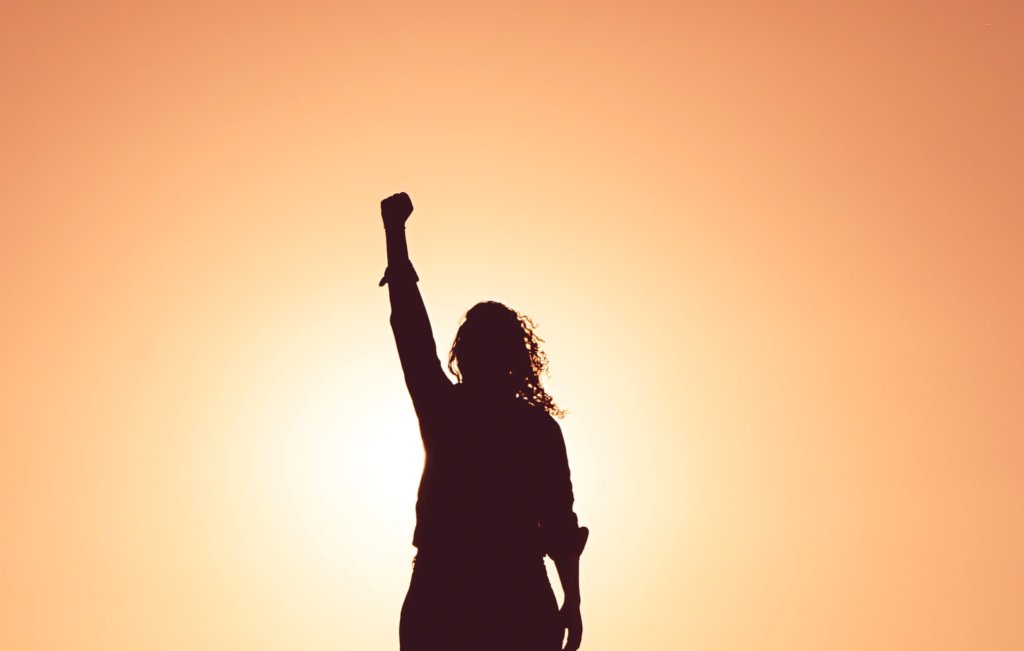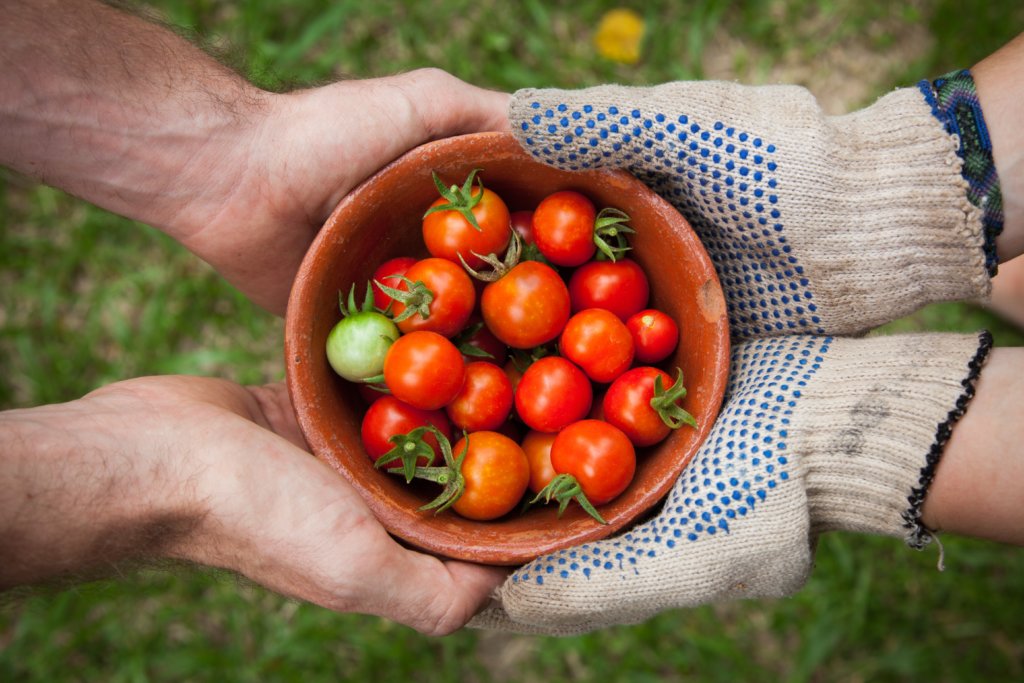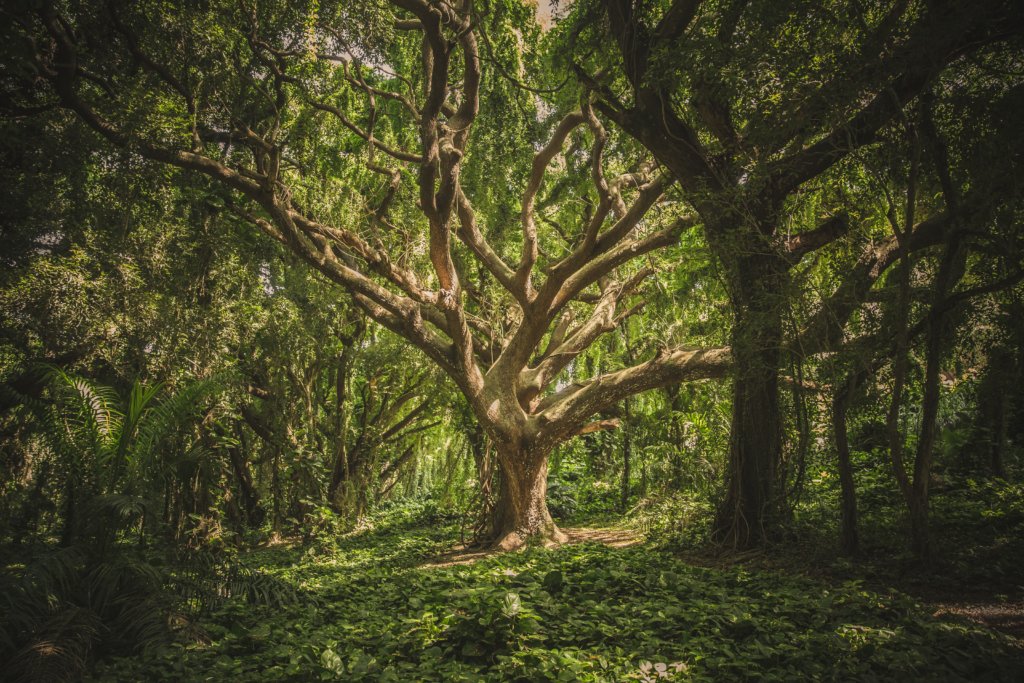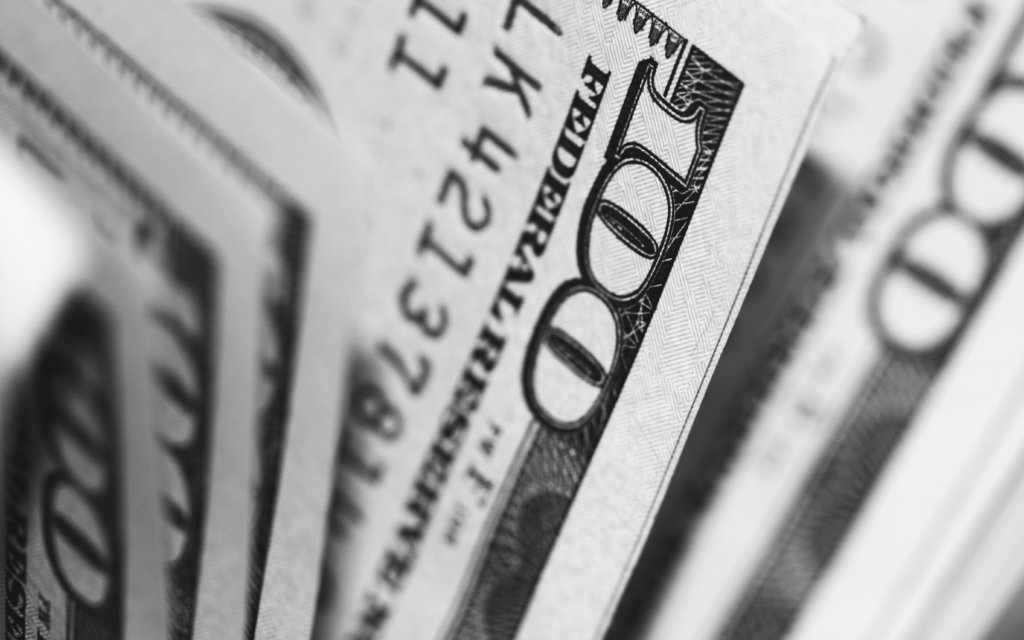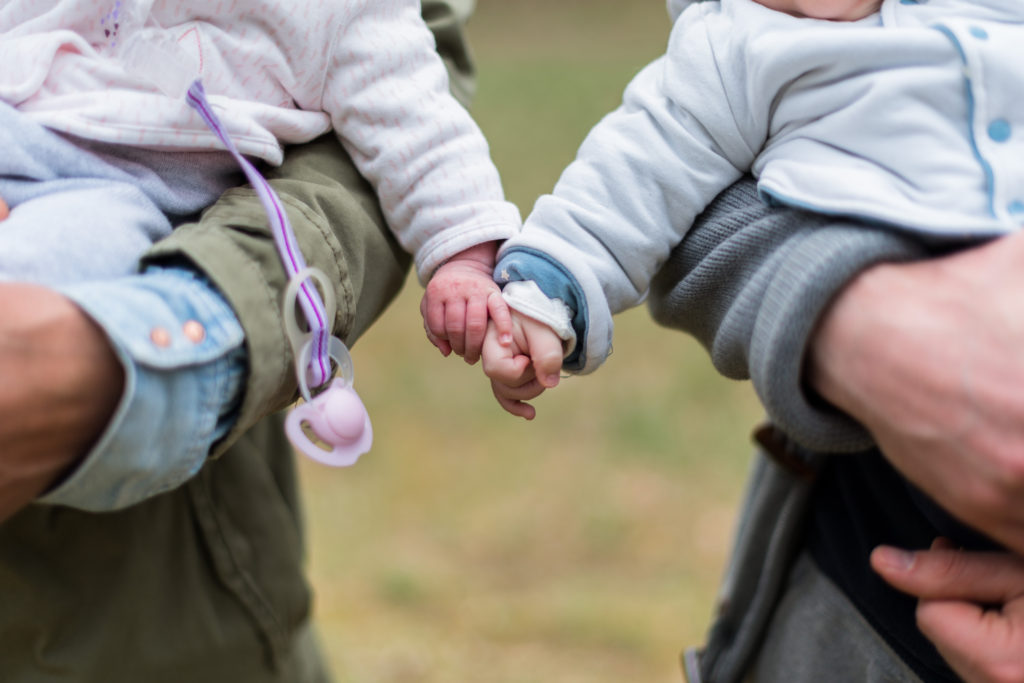I’m currently in Denmark at an economic conference so it seems only fitting to share this post I wrote in 2009. Many things are different – I no longer work for a magazine full-time or live in San Francisco – but my dreams remain the same. Enjoy.
This morning, I had a nightmare the magazine I work for folded. That created a ripple effect whereby I couldn’t pay my rent because I have pretty much zero savings. I woke up with my heart pounding, feeling scared and dissatisfied. Dissatisfied not for my own sake but for the way the world currently runs. Dissatisfied with unemployment, homelessness, and greed ravaging the world. Fed up with our entire economic system.
I’ve written about this before, but I’m tired of the “fend for yourself” and “rise and fall on your own” mentality. Why should my well-being rest squarely on my shoulders alone? Why should anyone go hungry? Why should anyone live on the streets? Why should anyone scrape by? Why can’t we as humans reach out to one another and support each other? Why can’t we know the true meaning of community?
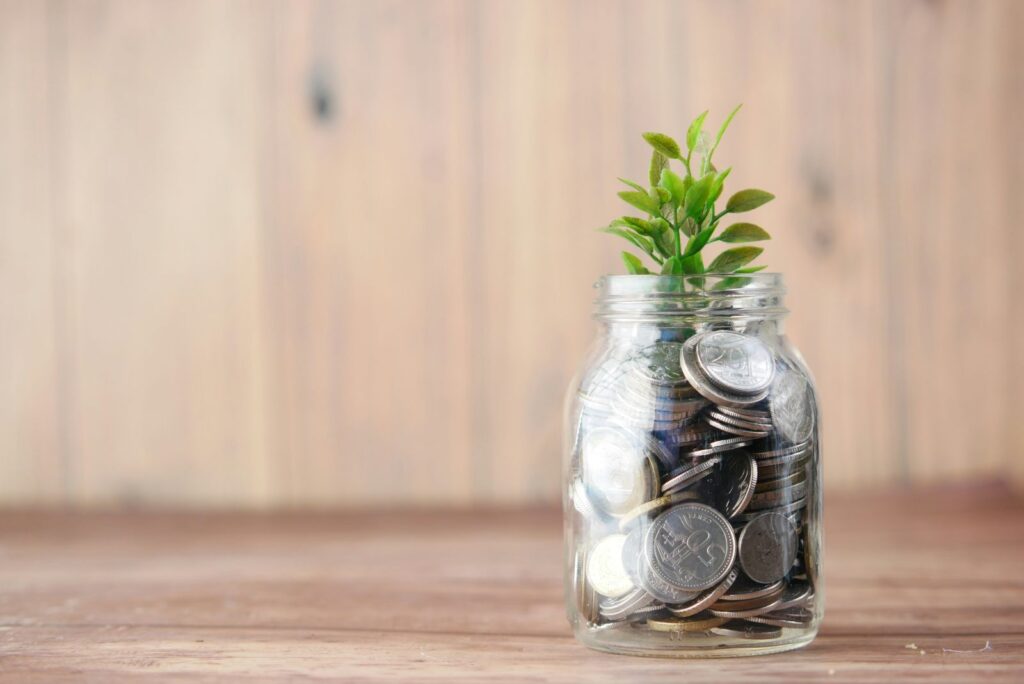
Photo by Towfiqu barbhuiya on Unsplash
As humans, each and every one of us has a right for our basic needs to be met. Every person should be guaranteed food, clothing, shelter, education, and medical care. This current economic system? It’s not working. If it did, we wouldn’t be facing the problems we are now.
I am not suggesting we pick up communism because clearly that doesn’t work so well either. The best economic theory I’ve come across thus far is Prout – the Progressive Utilization Theory. Prout says the basic necessities of life should be guaranteed for everyone. It values local businesses and local cultures. It says there should be three tiers of business: 1.) cooperatives 2.) private enterprise and 3.) government-owned industries. It recognizes resources are limited and should be treated as such.
What would it be like to live in a world where we KNEW beyond a shadow of a doubt that our needs would be met? Not because we have hope and faith but because the system itself is set up that way? What if there were zero unemployment? And people who truly cannot work were also taken care of? None of this, “I can’t afford to buy groceries until the first of the month,” business but really, truly taken care.
Under Prout, that’s what happens. Workers are not exploited. People are not commodities. Everyone, everywhere, is valued. Everyone is paid a living wage and there’s a wealth cap. Resources are evenly spread and necessities like water aren’t for profit. “Homelessness” fades from our lexicon because it is eradicated.
The environment is treated with respect rather than as a resource to pillage. We invest in local economies and let local people make decisions about how to run things for themselves. Is it a pipedream? Maybe, but in the words of Nelson Mandela, “It always seems impossible until it’s done.” I see sprouts of this growing everywhere – in cooperatives doing amazing work. In people turning to their hyperlocal communities for support. In folks waking up to the fact there’s a different way to do things. A new economy can be created. If we create it.
Another world is not only possible, it’s probable.
I keep thinking about the swiftness with which Silicon Valley Bank (SVB) collapsed. In the span of 48 hours, it went bust because as interest rates rose, VC capital to SVB’s portfolio companies decreased. That required the companies to start withdrawing deposits from SVB to fund day-to-day business operations but those deposits sat in bonds that were losing value by the day. The need for cash forced the bank to sell their illiquid bonds at a loss, and boom, financial panic.
Whenever I hear stories like these, I strangely have a surge of hope that it portends the fall of capitalism. Don’t get me wrong, I don’t wish financial hardship on anyone. I don’t relish the idea workers won’t get paid or that their retirement accounts will vanish. But I do very much wish corporate capitalism will fall. Big corporations running the show are destroying, well, everything. There’s a place for small-scale capitalism in the form of local shops and restaurants, but these huge conglomerates exacerbating wealth inequality are choking the life out of us.

This picture will make more sense later. Photo by Tzvi Kilov on Unsplash
I had a visceral experience with wealth inequality this week when I went to San Francisco for an appointment. Every 10 feet I either spotted an unhoused person or was solicited by one. It’s overwhelming to be somewhere people are shouting, “Excuse me! Excuse me!” every few feet, and not because they’re hawking goods but because they are in desperate need of something as basic as food.
I cried multiple times when I came home because it’s heartbreaking to witness the evils of capitalism in your face like that and also to know things could be different. The U.S. is the beating heart of capitalism and materialism and visiting Australia reminded me of that. I was abroad for Valentine’s Day and I barely remembered the holiday was occurring because there weren’t hearts displayed in every storefront. There weren’t exhortations to stock up on chocolate and teddy bears whereas here, every holiday is an opportunity to sell something, and the pressure to buy more, more, more is always there.
Is it any wonder SVB execs did what they did? I’m not absolving them of wrongdoing but I am saying we live in a culture where this sort of behavior is encouraged. And yet, SVB did fail and in that collapse, I take heart remembering my spiritual teacher said capitalism will explode like a firecracker, and furthermore, no one will know it’s about to happen even 15 minutes before.
The time element is likely hyperbole but the strong grip capitalism has on our society is not interminable. It can change and it will change because capitalism will collapse under the weight of its own greed. I don’t know what that turning point will be. I don’t know what event will finally cause capitalism to explode like a firecracker, but I know it’s coming. And I also know I welcome that world because I experienced a small taste of it when I was in Australia, which yes, is a capitalist country, but not nearly as materialistic as the good ole U.S. of A.
I dream of a world where capitalism is a faded memory. A world where compassion, kindness, and care for others are valued over greed and amassing as much wealth as possible. A world where in the moments we wonder if that future exists, we remind ourselves it does because as SVB shows us, capitalism will explode like a firecracker and it may happen fast.
Another world is not only possible, it’s probable.
This repost is from almost exactly six years ago but is still relevant today. Enjoy.
I had a dream the other night my sister, Rosie, and I slept in the same bed. She started hogging all the covers and I yanked them back from her and said, “No. You can’t take all the covers.” It’s not a dream based on reality but nonetheless, it got me thinking about greed, especially as it relates to the world’s resources. A group of people is hogging almost all the resources leaving the rest of us shivering in the cold.
Activist Peter Joseph said, “The value system disorder of rewarding, in effect, generally the most ruthless and selfish in our society, both by financial means and then by public adoration and respect, is one of the most pervasive and insidious consequences of the incentive system inherent to the capitalist model.”
I’m with you, Peter. By and large, we as a society seem to be OK with greed as long as it comes from a place of power. No one bats an eye when we hear about corrupt politicians or businessmen engaging in shady backroom deals. In fact, I think we expect it. We’ve become so used to greed and selfishness it seems normal. In a way, it is normal. We all have the same tendencies within us. In yogic philosophy, these tendencies are called vrttis.

Let everyone have a piece of the pie. Photo by Erol Ahmed on Unsplash
My spiritual teacher says, “The correct way to get rid of depraving tendencies is not to repeat to oneself that I shall avoid this tendency or that. Suppression is not the proper way to weaken these tendencies. Do not suppress, but channelize. Humans are psychic beings. Reconvert the psychic into the spiritual. Let elevating tendencies be converted into a spiritual wave.”
My point in using that quote is to say yes, we all have the capacity for cruelness, greed, selfishness, but that doesn’t mean we say, “Oh well. It’s natural. Let it do its thing.” No. As human beings, we are constantly evolving and that means using rationality, it means channelizing our natural propensities toward something else. If I want to strangle a cat, instead of acting on that impulse, it’s better for me to rip up a phone book, or scream into a pillow. The same is true, and can be true, for greed.
I realize not everyone is interested in converting their natural impulses, that’s fine, but it means we as a society have to impose laws and sanctions. We already have consequences for things like murder and theft, why don’t we have consequences for hoarding wealth? Why do we instead encourage it? I already know the answer to that question, but I’d like to go back to my dream.
If Rosie and I were still children living at home, what would happen if we started bickering about the bed covers? Our parents would come in and either make us share or give us separate bed covers. They would come up with a solution – they wouldn’t say, “Oh well. It’s human nature to be greedy Rebekah, get over it. You’ll just have to shiver.”
I’m proposing that we all start acting like parents, coming up with solutions that work for all of us. I’m proposing that we act like adults and say, “No” to people who want to hoard all the covers, so to speak, and instead encourage a fairer share.
I dream of a world where we work together to curb the natural impulse toward greed. A world where we say “No” to hoarding wealth. A world where we understand we can channelize our natural tendencies into something else. A world where we ensure people receive a fair share.
Another world is not only possible, it’s probable.
June 21 and 22 are Amazon Prime days so I wanted to take a minute to talk about the reality of this company and capitalism in general.
Earlier this month, the New York Times came out with an article titled “The Amazon Customers Don’t See.” It’s quite long so I won’t detail the intricacies of the article but instead highlight a few aspects. First off, Amazon measures the time each employee spends off task at its warehouses, meaning every bathroom break is accounted for. If a person spends too long in the bathroom, they can be, and have been, fired.
One employee wrote on the internal feedback board, “It is very important that area managers understand that associates are more than just numbers. We are human beings. We are not tools used to make their daily/weekly goals and rates.”
However, Amazon warehouse employees are not treated like human beings, which is reflected in the company’s turnover rates. From July to October 2020 alone, Amazon hired 350,000 new workers, which is more than the population of St. Louis. Many recruits were hired through computer screening with little conversation or vetting. They only lasted a few days or weeks. Amazon’s turnover rate is roughly 150% a year, which is almost double that of the retail and logistics industries, according to the Times.

I urge you not to support this company. Photo by Christian Wiediger on Unsplash
Some more numbers for you: In 2019, the company hired more than 770,000 hourly workers, even though Amazon, including corporate staff, grew by just 150,000 that year. That means the equivalent of Amazon’s entire work force, roughly 650,000 people at the start of the year, left and were replaced that year. If Amazon is churning through its entire work force once or twice a year, it would need to have eight, nine, 10 million people apply each year, which is about 5% of the entire American work force. Five percent of the ENTIRE American work force.
The high turnover is built in to Amazon’s bones as Jeff Bezos said he didn’t want hourly workers to stick around for long because he viewed a large, disgruntled work force as a threat. Yeah, because then they might start asking for stuff like higher pay. . .
Also, let’s talk about racism. Black associates were almost 50% more likely to be fired than their White peers. In Amazon’s warehouse, more than 60% are Black or Latino whereas more than 70% of managers are White or Asian. So not only is Amazon burning through workers, it’s also perpetuating racism within its ranks.
Amazon is a prime (ha!) example of capitalism at its worst. Not only is Amazon exploitative, it plays to the worst part of our humanity – our desire for convenience no matter the cost. Bezos said people are inherently lazy and our nature as humans is to expend as little energy as possible to get what we want or need. He’s right, which is why Amazon sales exploded during the pandemic and the company continues to grow.
But again, I ask, what price are we paying for this convenience? We’re destroying the planet and treating people like machines. We’re supporting a company that appeals to our basest instincts and perpetuates what many are so actively fighting to change, i.e., racism. If you care about small businesses, workers’ rights, human rights, or the planet, you cannot actively support Amazon. And look, I know there are some products only Amazon sells – a “perfect” boycott is likely unachievable, but can you buy less from them? Even a little less? I know it’s inconvenient, but perhaps the price is worth it.
I dream of a world where we support our fellow human beings. A world where we demand people are treated with the respect and care they deserve. A world where we put our money where our mouths are when it comes to our values. A world where we understand sometimes the price of convenience is too high to pay.
Another world is not only possible, it’s probable.
The other day a close friend remarked as a society we have decided we will do anything to save a human life, which is both true and not true. It’s true that we are physically distancing, that we’re staying at home, that many businesses are closed due to COVID-19 because we want to save lives, but at the same time in the U.S. anyway we’re seeing the total opposite: valuing capital above all else.
Lieutenant Governor of Texas Dan Patrick wants to reopen the state and said “there are more important things than living.” In March, he went on Fox News and said “lots of grandparents” would rather die than see the U.S. economy suffer. Also, senior citizens should “take a chance on survival” for the good of the Dow Jones. He’s not alone – Rep. Trey Hollingsworth, R-Ind., said that deaths due to COVID-19 were “the lesser of these two evils” compared with a failing economy. In some ways he’s right because we don’t know how many people will die because they’re out of work, they’re starving, they’re killed by domestic violence, or afraid to go to the hospital because of COVID-19. It’s a tricky life-and-death balance for sure, but all of it I think speaks to our flawed capitalistic systems.
An article in Common Dreams said whether Americans know it or not, the government is working on behalf of capital. This is evident because the government is prioritizing the health of corporate balance sheets rather than human bodies. We know this because for the most part people are going on unemployment benefits rather than remaining on existing payrolls. We know this because we ran out of federal relief money for small businesses but not big businesses.
I keep thinking about something a finance professor at a prestigious university said to me years ago: capitalism requires an economic underclass. In order for capitalism to function, someone has to get the short end of the stick. It seems to me we’re reaching a point where the vast majority of people are in the economic underclass. I want to acknowledge some people are really, really in the underclass. Some people are suffering FAR more than others, but even people who perhaps felt comfortable before the pandemic are feeling the economic pinch now.
I said this to my neighbor a few weeks ago, but I’m reminded of Marie Antoinette, the last queen of France before the French Revolution. It’s a myth that she said, “Let them eat cake” in response to people clamoring for bread, but the sentiment is alive and well. Las Vegas Mayor Carolyn Goodman wants to reopen the city’s casinos, hotels, and stadiums, but when asked if she’d be willing to spend nights on casino floors alongside other visitors, she evaded the question and then replied, “First of all, I have a family.” How very out of touch.
What am I building to here? It seems to me we’re on the cusp of a revolution. How much more suffering do we have to endure before we say enough is enough? My spiritual teacher said, “The inevitable consequence of exploitation is revolution. When the merchants, maddened with excessive greed, lose their common sense completely and forsake their humanity totally, then the opportune time has come [for revolution] …. Revolution takes place when, from the economic perspective, only two classes remain in society: the exploiters and the exploited.”
Sounds to me like we’re there. I’m ready for the revolution y’all. I’m ready for a world that guarantees basic necessities. A world that no longer operates on the false principle that anyone can become rich if they only work hard enough. A world that puts greed in check and limits how much wealth one person can accumulate. A world where we put a stop to exploitation and value living beings for how precious they truly are.
Another world is not only possible, it’s probable.
I had a dream the other night my sister, Rosie, and I slept in the same bed. She started hogging all the covers and I yanked them back from her and said, “No. You can’t take all the covers.” It’s not a dream based on reality because Rosie cares a lot about sharing, but nonetheless, it got me thinking about greed, especially as it relates to the world’s resources. A group of people are hogging almost all the resources leaving the rest of us shivering in the cold.
Peter Joseph said, “The value system disorder of rewarding, in effect, generally the most ruthless and selfish in our society, both by financial means and then by public adoration and respect, is one of the most pervasive and insidious consequences of the incentive system inherent to the capitalist model.”
I’m with you Peter. By and large, we as a society seem to be OK with greed as long as it comes from a place of power. No one bats an eye when we hear about corrupt politicians or businessmen engaging in shady backroom deals. In fact, I think we expect it. We’ve become so used to greed and selfishness it seems normal. In a way, it is normal. We all have the same tendencies within us. In yogic philosophy, these tendencies are called vrttis.
My spiritual teacher says, “The correct way to get rid of depraving tendencies is not to repeat to oneself that I shall avoid this tendency or that. Suppression is not the proper way to weaken these tendencies. Do not suppress, but channelize. Humans are psychic beings. Reconvert the psychic into the spiritual. Let elevating tendencies be converted into a spiritual wave.”
My point in using that quote is to say yes, we all have the capacity for cruelness, for greed, for selfishness, but that doesn’t mean we say, “Oh well. It’s natural. Gotta let it do it’s thing.” No. As human beings we are constantly evolving and that means using rationality, it means channelizing our natural propensities toward something else. If I want to strangle a cat, instead of acting on that impulse, it’s better for me to rip up a phone book, or scream into a pillow. The same is true, and can be true, for greed.
I realize not everyone is interested in converting their natural impulses, that’s fine, but it means we as a society have to impose laws and sanctions. We already have consequences for things like murder and theft, why don’t we have consequences for hoarding wealth? Why do we instead encourage it? I already know the answer to that question, but I’d like to go back to my dream.
If Rosie and I were still children living at home, what would happen if we started bickering about the bed covers? Our parents would come in and either make us share or give us separate bed covers. They would come up with a solution – they wouldn’t say, “Oh well. It’s human nature to be greedy Rebekah, get over it. You’ll just have to shiver.”
What I’m proposing here is that we all start acting like parents, coming up with solutions that work for all of us. I’m proposing that we act like adults and say, “No” to people who want to hoard all the covers, so to speak, and instead encourage a more fair share.
I dream of a world where we work together to curb the natural impulse toward greed. A world where we say “No” to hoarding wealth. A world where we understand we can channelize our natural tendencies into something else. A world where we give people their fair share.
Another world is not only possible, it’s probable.
The other day my Lyft driver said the word “thug” with so much derision it sounded like a slur. Frankly, I think that’s how he meant it. He also praised a town in California that restricts the number of residents by not building any new dwellings, and the town would rather pay penalties than allow section eight housing. What astounds me is this guy presumably thinks society would be better off if all towns quarantined the poor and people of color as if they were deadly viruses.
I understand this already happens to a large degree – many places stratify according to socioeconomics and/or ethnicity – but it’s shortsighted and unnatural. I read a fascinating article about trees the other day. Did you know a tree can be only as strong as the forest that surrounds it?
Neighboring trees help each other through their root systems either directly, by intertwining their roots, or indirectly, by growing fungal networks around the roots that serve as a sort of extended nervous system. Why do they do this? According to German forester Peter Wohlleben, it’s because like in human communities, there are advantages to working together. He said:
“A tree is not a forest. On its own, a tree cannot establish a consistent local climate. It is at the mercy of wind and weather. But together, many trees create an ecosystem that moderates extremes of heat and cold, stores a great deal of water, and generates a great deal of humidity. And in this protected environment, trees can live to be very old. To get to this point, the community must remain intact no matter what. If every tree were looking out only for itself, then quite a few of them would never reach old age. Regular fatalities would result in many large gaps in the tree canopy, which would make it easier for storms to get inside the forest and uproot more trees. The heat of summer would reach the forest floor and dry it out. Every tree would suffer.
“Every tree, therefore, is valuable to the community and worth keeping around for as long as possible. And that is why even sick individuals are supported and nourished until they recover. Next time, perhaps it will be the other way round, and the supporting tree might be the one in need of assistance.”
It seems so obvious, noting at one time or another we may be in need of assistance, yet somehow it’s not. We praise rugged individualism in the U.S. as if that’s a good thing. We pretend a person can be separated from others and thrive. Human beings are social creatures, we need other people to survive, yet we operate as if the problems of those down the street have nothing to do with us, as if there is an “over there” and an “over here.” We are already living in a community, we are all already sharing the same resources, and in order for us all to thrive, it’s important we remember that. And that’s the sort of world I want to live in.
I dream of a world where we remember we are all in this together. A world where we realize isolating ourselves from problems doesn’t make them go away. A world where we remember we can only be as strong as the community around us. A world where we realize a tree is not a forest and a human is not a community.
Another world is not only possible, it’s probable.
Right now the funds in my bank account are low – I am one of those people who lives paycheck to paycheck. I think it’s fair to say I’m a slave to my paycheck and I’m not the only one. If I lost my job tomorrow, I’d be in big trouble. I notice there’s a part of me, a teeny part, that feels ashamed of that. Like if I’m poor it’s my fault because I’m not budgeting well or proactive enough. There might be some truth to that, but also I take a look around me and notice I’m not the only one experiencing this. And if I’m not the only one experiencing this, doesn’t that point to something systemic? Yes! It does!
A friend of mine works as a finance professor in a major metropolitan city and he told me something we don’t like to admit about capitalism is it requires an economic underclass. In order for capitalism to function, someone has to get the short end of the stick. I’ll remind you this is not coming from a pinko-commie, this is coming from someone who teaches finance at a well-respected university.
The ugly truth about capitalism is it requires exploitation. I read a fascinating article the other day about the myth of the ethical shopper. The author, Michael Hobbes, wrote that these days, it’s not the U.S. that’s a major culprit of sweatshops, it’s other countries. Indian children subsist off of pennies a day making clothing not for Americans, but for Indians or Chinese. Hobbes also said the production cycle is so divorced from people at the top, no one really knows where their clothes are made. Contracts subcontract out over and over again until the whole thing becomes a tangled mess. And for people in those sweatshops who try to unionize, the company says, “See you later,” and goes to another country where regulation is more lax and they can pay people less. As long as we care about getting something for the lowest price possible, we’ll continue to have this situation.
It’s not only a developing world problem, by the way, it’s also in the good old U.S. of A. Women are still paid less than men, and women of color really get shafted. And let’s not forget the exploitation rampant in sectors like food. The working conditions for people who pick produce is appalling. I bring this up because we pretend capitalism can work as a system, that it only needs a few tweaks. We pretend that anyone can become a millionaire if they only remove their mental blocks to abundance. That may be true, but what about everyone else?
Did you know approximately eight people own half the world’s wealth, according to Oxfam? The Economist takes issue with the math, but even they conclude a small number of people own half the world’s wealth. That means the rest of us are fighting for a small piece of pie. I don’t know about you, but I’m not OK with this. We have a minimum wage, why don’t we have a maximum wage? Why don’t we have rules about how much wealth one person can own? If that sounds too communist, OK, then how about enhancing our social safety nets? Right now, the U.S. government is cutting funding for food stamps, Medicare, and other social services. If I lose my job tomorrow, I’m more likely to lean on friends and family than the government. Isn’t the government supposed to be of the people, by the people, and for the people? I’m sure not seeing a lot of that.
I realize this post is not an optimistic one, but in this instance, I think it’s important to acknowledge the ugly truth. Until we do, we’ll never see the changes we’d like in our society, and I long for those changes.
I dream of a world where everyone everywhere has their basic needs met. A world where we aren’t slaves to our paychecks. A world where we can lose our jobs and still be taken care of. A world where we start treating all living beings as worthy and deserving of respect.
Another world is not only possible, it’s probable.
The other week I posted a news story on facebook with commentary that I have compassion for robbers and the robbed, and was met with so much vitriol it astounded me. People I didn’t know called me a moron (and worse), told me to get off of facebook, etc. What I heard over and over again was, “I’m poor and I’ve never robbed anyone.” That’s great! I’m glad there are poor people that don’t rob others. Keep not robbing.
What strikes me is how me-centered that viewpoint is. There is an inherent expectation that we all act a certain way, but guess what? We don’t. And placing so much onus on the individual doesn’t work. I’m reminded here of the recently passed healthcare bill in the House of Representatives. The terms of the bill are ludicrous in my opinion. “Have you ever been sick? Are you a woman? So sorry, no healthcare insurance for you or you’ll have to pay staggering premiums. Good luck with that.”
Indian philosopher and economist P.R. Sarkar said, “Rich people do not want to consider the needs of the poor, because if they do, they will have to make some sacrifices. Where will their luxuries and comforts come from if hunger does not burn the bellies of the poor?” Our capitalistic society encourages this mindset, encourages us to look out only for ourselves, and try to scramble to the top of the heap by declaring, “I worked hard for this so I earned it!” Yes, but that means the suffering of others continues. It’s easy to dismiss, to say the people in that position just didn’t work hard enough, or try hard enough, or act the right way, or whatever. There are a thousand excuses we could give.
Sarkar said, “[T]o admit that these sufferings are the result of social injustices implies that everyone is responsible.” And that’s the thing, we are all responsible. We are all responsible for each other. The human family includes everyone. I’ve quoted this African proverb before, but it’s pertinent so I’m quoting it again: “If you want to go fast, go alone. If you want to go far, go together.”
I want to go far. I long to go far. How do we do that? What can little ole me do from her apartment here in California? It sounds cheesy as all get out, but one of the answers is love. I’ll close with another quote from Sarkar:
Like any other problem, great or small, there is only one way to solve economic problems, and that is through genuine love for humanity. This love will give people guidance; it will show them what to do and what not to do. It is not necessary to study great numbers of books or to rely upon those who speculate with the future of the silent masses. The only essential requirement is to look upon humanity with genuine sympathy.
I may not be a politician, I may not be an economist or a philanthropist or a CEO, but I sure as heck can love humanity. I can have compassion and sympathy and empathy for those around me. I can keep loving people even through their missteps. I can keep spreading love and embodying love and talking about love even when people call me foolish. And I will.
I dream of a world where a genuine love for humanity is awakened in all of us. A world where we all look out for each other. A world where we understand our progress is linked to those around us. A world where we understand the human family includes everyone and we act accordingly.
Another world is not only possible, it’s probable.
